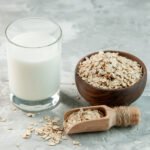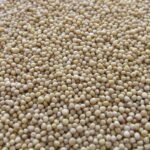Navigate the golden maze of corn’s nutrition and benefits, its forms, and fun facts, in this comprehensive guide.
Popping the Lid Off Corn’s Nutritional Secrets
Shucks, folks! If you thought corn was just a staple at your summer barbecues or the star ingredient of your favorite movie snack, you’ve only scratched the surface. There’s more to corn than meets the eye, and it’s high time we got to the root of it.
The Genesis of Corn: An Ancient Grain
Born in Mexico over 9,000 years ago, corn, or maize, has spread its golden glory across the globe. Initially cultivated by Native Americans, it now pops up in dishes from Italy to India.
Historically, corn’s not just been a source of food but a symbol of life and fertility, making it a kernel of truth in many cultures.
More Than Just Corn on the Cob: The Versatility of Corn
Whether you fancy it on the cob, popped, creamed, or in a chowder, corn’s versatility is nothing short of impressive. Heck, you can even enjoy it as cornmeal, grits, polenta, or tortillas. The ways to eat corn are as numerous as its kernels.

Don’t forget, it’s not just about versatility. With each form of corn, you get a unique blend of nutritional benefits.
Unshelling the Nutritional Value of Corn
Corn might be a common sight in your pantry, but there’s nothing ordinary about its nutritional profile. Let’s cobble together the facts, shall we?
| Nutrients | Amount per 100g |
|---|---|
| Calories | 86 |
| Protein | 3.27g |
| Total Fat | 1.35g |
| Carbohydrates | 18.7g |
| Dietary Fiber | 2g |
| Vitamin C | 6.8mg |
| Vitamin B1 (Thiamin) | 0.155mg |
| Calcium | 2mg |
| Iron | 0.52mg |
Pretty a-maize-ing, huh? Let’s take this a notch higher and see how these nutrients work their magic on your health.
Corn’s Corner: Health Benefits Galore
There’s a reason corn has stayed in our meals for millennia. Its health benefits are as abundant as its yellow kernels:
- Rich in Fiber: The high fiber content aids in digestion and keeps you feeling full.
- Vitamin B1: Thiamin is crucial for brain cell/cognitive function. Munch on corn for mental wellness!
- Boosts Energy: The complex carbs provide a slow and steady release of energy.
- Good for Eyes: Corn is a good source of antioxidants, including those that promote eye health.
Now that’s some food for thought, isn’t it?
Husking Your Doubts: Answering FAQs
Can I eat corn every day?
Yes siree! Corn can be part of a balanced diet, but like all good things, it’s best in moderation due to its carb content.
Is corn gluten-free?
Yes indeed! Corn and cornmeal are gluten-free, making them a safe choice for those with celiac disease or gluten sensitivity.
The Last Kernel: Wrapping Up
Corn, with its nutritional bounty, has more than earned its spot in the limelight and in our diets. Whether grilled, boiled, popped, or baked, it brings along a host of health benefits.
So, are you ready to cob-ble together some tasty, nutritious dishes with corn?
Farm-Fresh Facts: Getting to Know Corn Better
- Corn is a member of the grass family.
- One ear of corn has roughly 800 kernels in 16 rows.
- Corn is grown on every continent except Antarctica.
References
[1] “Maize: A Paramount Staple Crop in the Context of Global Nutrition”
[2] “USDA FoodData Central”




